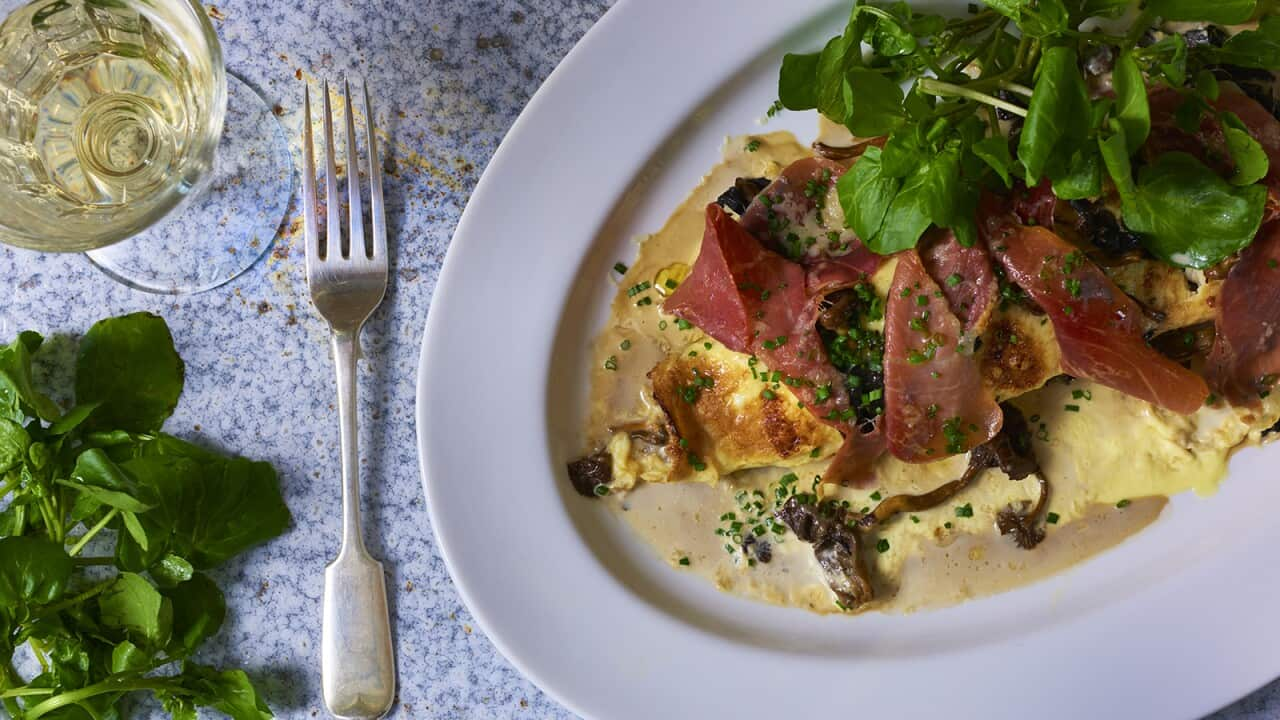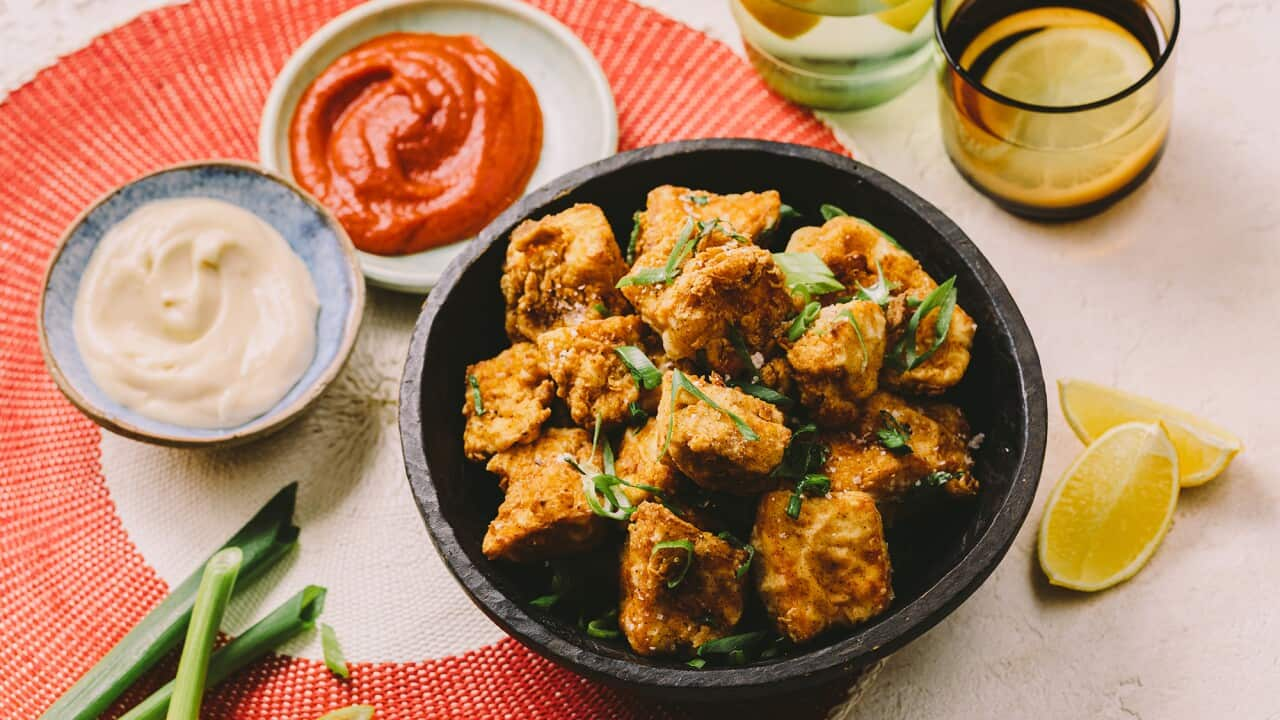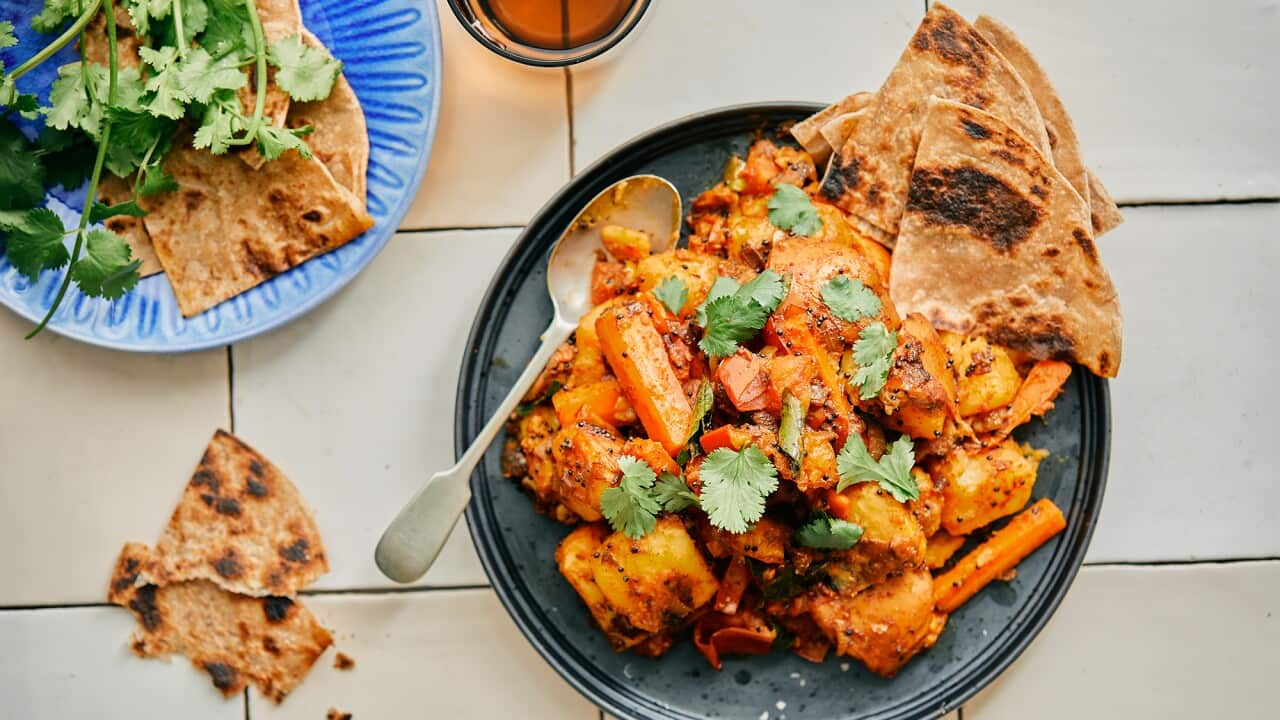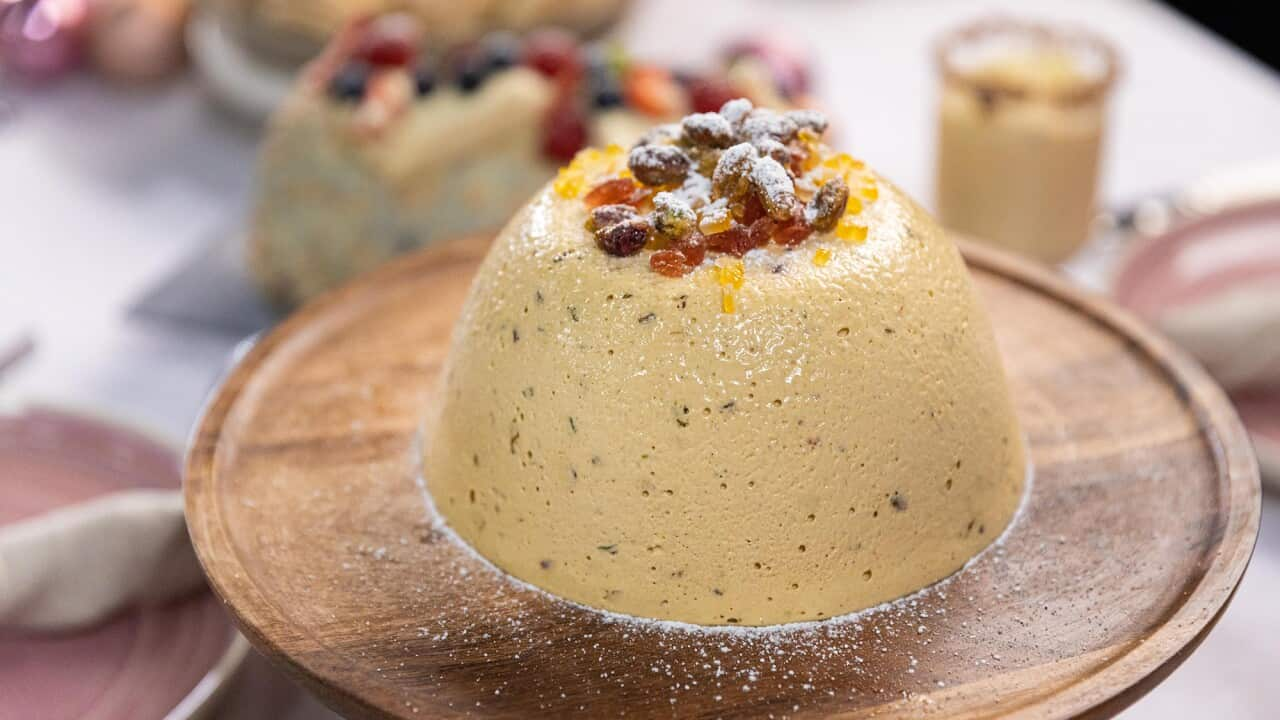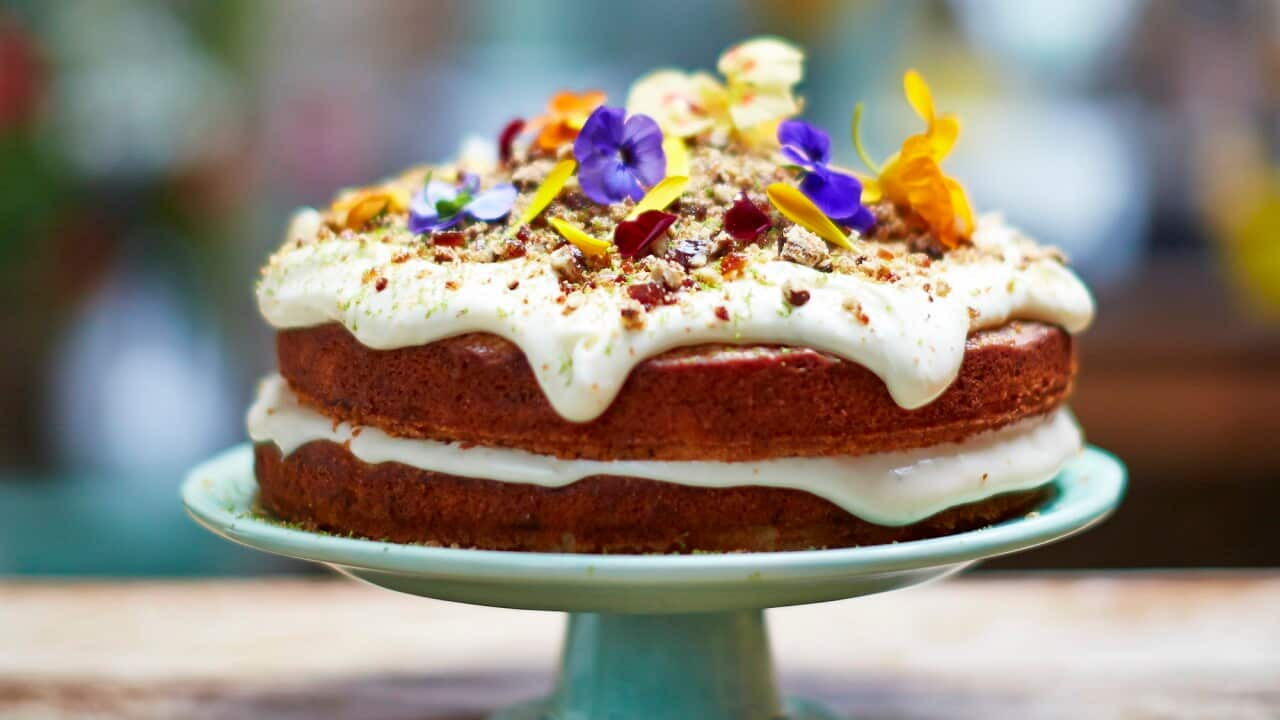serves
2
prep
10 minutes
cook
15 minutes
difficulty
Mid
serves
2
people
preparation
10
minutes
cooking
15
minutes
difficulty
Mid
level
Ingredients
- 30 g butter, divided
- 3 tsp (15 ml) thick (double) cream
- 4 eggs, whisked
- 100 g wild or purchased mushrooms
- 50 g Bayonne ham, sliced (see Note)
- 50 g grated comte cheese
- Small bunch chives
- Small bunch watercress
Instructions
- Melt about a third of the butter in a frying pan over medium heat, then sauté the mushrooms until just cooked. Set aside.
- Meanwhile heat the grill to high. Whisk together the eggs and season. Add the cream.
- Place the remaining butter in a non-stick frying pan, over a gentle heat. Once foaming, add the eggs, and cook, using a spatula pull the edges in to the centre as it begins to cook.
- If you’d like to use James’ multi-step method for a neat omelette (see Note), dampen a tea towel and have it ready
- When the omelette is baveuse – just slightly underdone - place the mushrooms in the middle of the egg. Using a spatula and tilting the pan, fold the omelette in half then slide out of the pan onto a heat-proof serving dish. (Alternatively, see Note for method).
- Place onto a baking tray, pour over the cream, sprinkle over the cheese and then the ham, and grill for 1 to 2 minutes.
- Chop the chives and sprinkle over the top. Garnish with sprigs of watercress.
Note
- Bayonne ham, also known as jambon de Bayonne, is a dry-cured ham that takes its name from a coastal city in the south of France. You could use prosciutto instead.
- When making this in James Martin’s French Adventures, James Martin uses several steps to create a neat, rounded omelette. When ready to remove from the pan, use a spatula to fold a third of the omelette over itself and then tilt the frying pan as you slide and roll the omelette onto a heat-proof serving dish. Immediately place a damp tea towel over it and use the tea towel to form and mould into an elongated rugby ball shape. Proceed with remaining steps.
Cook's Notes
Oven temperatures are for conventional; if using fan-forced (convection), reduce the temperature by 20˚C. | We use Australian tablespoons and cups: 1 teaspoon equals 5 ml; 1 tablespoon equals 20 ml; 1 cup equals 250 ml. | All herbs are fresh (unless specified) and cups are lightly packed. | All vegetables are medium size and peeled, unless specified. | All eggs are 55-60 g, unless specified.

